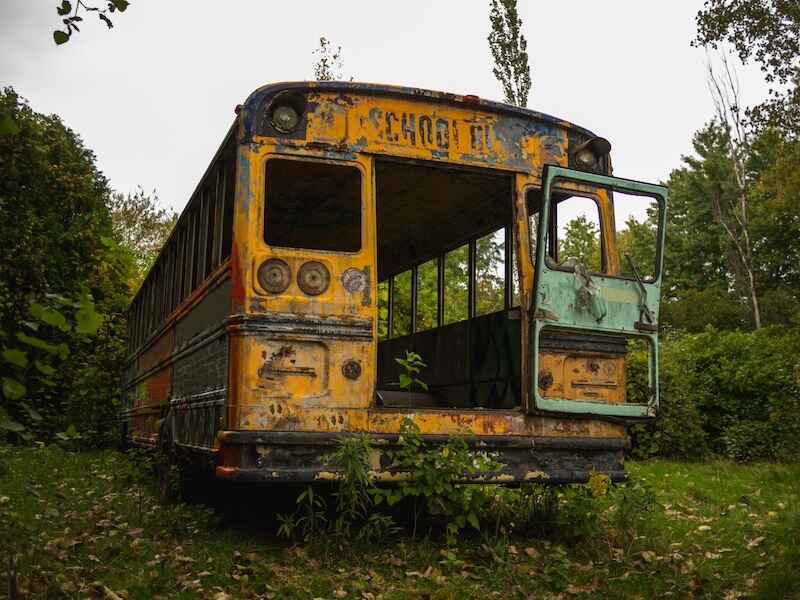How to Fix the Media and Get the Truth
Joel Salatin|October 26, 2021

Editor’s Note: It’s no secret the media is in the pockets of its advertisers… which means the “truth” is never black-and-white. But when someone like Joel Salatin is on a newspaper’s staff, you have a far better shot of getting the real story. Keep reading to see what Joel’s time at a local newspaper taught him about how the media works… and what his solution is for getting to the truth with today’s media.
Perhaps the most important mentoring I received in life came during my junior and senior years of high school. I worked Saturday nights at our local newspaper. At that time, the paper was published seven days a week, but Sunday was a morning edition, which meant Saturday night was critical for breaking news.
I was the official night desk receptionist. I fielded any calls that came in, wrote obituaries, received some police reports and hobnobbed with our crusty copy editors. They were crunchy, old-school editors. We wrote everything on manual typewriters.
As they say in journalism, it was a “happenin’ place.”
The folks there liked me and promised me a job as soon as I finished college – a promise they honored. We had seven full-time news reporters, two copy editors and one managing editor. The publisher and an assistant wrote most of the editorials. The emergency radio scanner constantly squawked in the corner. We all learned the telltale signals of urgency and newsworthiness.
Of the seven reporters, I was the only conservative. That meant I was the only one who didn’t take government agency press releases as gospel. I fact checked them. I was also the only one who didn’t assume any press release from a business was full of lies.
And more importantly, I was the only one who truly enjoyed doing research. To me, digging into a local issue, whether it was a business being harassed by tyrannous bureaucrats or big discrepancies in high school achievement tests, was like mining for gold. Sometimes things panned out the way you would think… and sometimes the truth was quite different from what you first suspected.
A Fire Is Lit
As they ran a local newspaper with a circulation of 20,000, the owners and manager were in civic clubs with politicians and local government administrators. While I loved the work, there were things about it I hated, and what I loathed more than anything was having stories spiked because “that guy is in Kiwanis Club with me.”
I learned quickly that while most of my conservative friends yelled “sensationalism” at many news stories, what happened more often was “sanitizing.” One is as corrupt as the other.
But I had one freedom – covering the adjoining county. The newspaper bigwigs did not have alliances in that county, so I was fairly free to do my thing.
Quickly, I discovered that each county regulatory board (school board, service authority, zoning board, etc.) had one honest person on it. I cultivated friendships with those folks, who quickly learned to trust me. These moles fed me information and gave me leads that I would research. Sometimes the leads were a bit off, but generally these folks were in the ballpark.
Although I worked at the newspaper for only 30 months before coming back to the farm full time, in that short period I was able to get the commonwealth’s attorney (who was a crook) run out of town, the executive director of the service authority fired (he was a crook too) and the chairman of the service authority dismissed. I was gunning for the school superintendent when I traded the newsroom for the barnyard.
It was a good trade.
But that short experience lit a fire in me that’s never diminished – a hunger for real news in local communities.
News With Integrity
When I saw the citizens of the county respond to my information, I realized that people vote stupidly because there is much they don’t know. If somebody actually ferreted out good information for them, they would vote responsibly.
Free from the evils of advertiser dependency, fraternity and social pressure, I was able to use the unadulterated power of the press to turn a county upside down. Ever since that time, I’ve dreamed and schemed of starting a local weekly newsletter that would report one in-depth hard news story a week.
No advertisers. Subscription-driven. Just a four-page newsletter with integrity.
Many of us receive these kinds of newsletters for investments, health or politics, written on a national scale. Whether they come to us electronically or in paper form doesn’t matter. What matters is that they feed us important information that enables us to make better decisions.
Imagine having something like that in your community. In my short stint as a full-time reporter, scores of important stories came within my purview but were buried by the good ol’ boy network.
If my newsletter had been operational, parents would have known long ago what their children were being taught in government-run classrooms. It wouldn’t have taken a stay-at-home COVID-19 mandate for them to find out.
Imagine if any local business owner knew that when a local regulator became unreasonable or tyrannical, they could pick up the phone, call the newsletter and have the power of the press descend on the bureaucrat. That would give regulators pause.
Did I mention that subscriptions jumped in the adjoining county during my short tenure at the newspaper? People are always hungry for answers.
I’ve put this idea into a business plan, but alas, I can’t pursue it because in today’s cancel culture, my involvement would mean the loss of many customers for my farm business.
But the idea is sound, and good information is needed now more than ever.
Rather than spending our time and energy at the federal level, I suggest that a revival at the local level would create a bottom-up cleansing of corruption and new equity in freedom.
All it takes is one savvy person with a phone, a laptop and a means of transportation.
Surely there’s someone like that in every community in the U.S. Let’s go find them.

Joel Salatin
Joel Salatin calls himself a Christian libertarian environmentalist capitalist lunatic farmer. Others who like him call him the most famous farmer in the world, the high priest of the pasture, and the most eclectic thinker from Virginia since Thomas Jefferson. Those who don’t like him call him a bioterrorist, Typhoid Mary, a charlatan, and a starvation advocate. With a room full of debate trophies from high school and college days, 12 published books, and a thriving multigenerational family farm, he draws on a lifetime of food, farming and fantasy to entertain and inspire audiences around the world.



